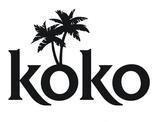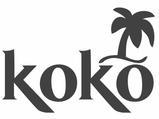KO-CO case shows cracks
Survey evidence did not cement its arguments, notes Sharon Kirby. O/353/20, KO-CO (Opposition), UK IPO, 15th July 2020

KO-CO Foods Ltd (the Applicant) began trading at the end of 2018 and filed UK application No. 3390030 in April 2019 for various chocolate-based and cocoa products in class 30. This was opposed by First Grade International Ltd (the Opponent) under s5(2)(b) of the Trade Marks Act 1994, based on three earlier registrations (Marks 1–3).

The Opponent started out supplying coconut-based products to manufacturers, producing its first retail item, a coconut-based dairy alternative to milk, by 2010. The line was later expanded to include yoghurt- and cheese-alternative products. The Opponent’s evidence showed strong growth in the UK, with stockists including major supermarkets.
The Applicant’s evidence included a Facebook survey purporting to show the level of public confusion. However, this was defective and not given any weight. For example, the survey did not allow for a comparison of the marks alone. Where images of the Opponent’s goods were included, these were for a non-dairy milk product bearing Mark 1, did not include the other marks registered by the Opponent, and did not include any of the other types of goods relied upon.

The absence of evidence of actual confusion was not conclusive. This might be due in part to the relatively short time the Applicant had been supplying products. The Hearing Officer (HO) reiterated that where an opponent’s marks are not subject to proof of use, a notional and fair use should be considered for the marks and the whole specifications protected.
In comparing Marks 1 and 2 to the opposed mark, the HO found that there was a high degree of similarity because the marks: had three of four letters in common; included palm tree motifs; had a similar aural identity; and evoked coconuts (or alternatively cocoa).

Due to the dominant element “KOKO” (“DESIRE” being somewhat laudatory), there was a medium degree of similarity overall between the opposed mark and Mark 3. The Opponent’s marks were held to possess a medium degree of inherent distinctive character. Finally, in comparing the goods, the conclusion was that several items were either identical or highly similar. Terms protected in the earlier rights, such as “dessert products”, were allowed a broad reading.

The HO found no direct confusion. Rather, it was a case of indirect confusion, namely “where the average consumer realises the trade marks are not the same but puts the similarity that exists between the trade marks and goods down to the responsible undertakings being the same or related” (applying LA Sugar v Back Beat, BL-O/375/10). This was true even in the case of low-value goods, which would not require a high degree of attention during a purchase.
In comparing Marks 1 and 2 with the opposed mark, the HO felt that consumers would see the commonalities and also notice the differences in spelling and the placement of the palm trees. Hence, consumers might suppose that the Applicant’s product was a variant or updated version of the Opponent’s earlier line. A conclusion of indirect confusion was reached in respect of the third mark also. The opposition succeeded in total.
Key points
- Informal Facebook survey evidence was problematic, particularly where it did not involve all of the Opponent’s marks and the goods relied upon
- Indirect confusion may be found even with low-value goods where only minimal care is taken in purchasing
More case comments:
Take two
There can be good reason to argue dual grounds, suggests Maya Muchemwa. O/1030/24, Baraqah Ltd v G & G Srl, UK IPO.
Who’s the boss?
Impressive evidence established the answer, writes Julia King. O/1028/24, Gym Boss Ltd v Hugo Boss Trade Mark Management GmbH & Co KG, UK IPO.
On the straight and narrow
The UK’s highest court brought closure to a persistent conflict, reports Antony Yerasimou. [2024] UKSC 36, SkyKick UK Ltd and another v Sky Ltd and others, Supreme Court.
Pet insurers put up a fight
Sarah Neil summarises a case that gives ‘paws’ for thought. [2024] EWCA Civ 1103, TVIS Ltd v Howserv Services Ltd and others, Court of Appeal.





